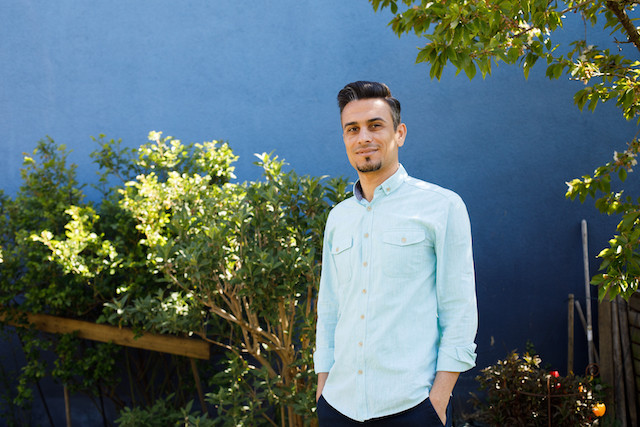Ibrahim has just started a new job as a physiotherapist in Luxembourg. But for the 33-year-old Syrian it is more than just a new job. It is the first time since 2012 that he has been able to work as a physiotherapist.
“I lost seven to eight years in the war in Syria,” he says, explaining that he initially trained for two years as a physiotherapist at his local health institute in Syria. Normally, that would allow him to work in a hospital, alongside a doctor. But not in Luxembourg, which does not recognise diplomas for doctors, dentists, pharmacists and vets obtained outside of the EU.
When Ibrahim arrived in Luxembourg in June 2016 as part of a refugee relocation programme, he went from pillar to post to get his qualifications recognised. “It’s a problem even if you just graduated and arrived here or you work and you come here directly, there’s no chance really to get your diploma recognised here or to start working,” he laments.
He was left with three options: pursue a new career, go to another European country for one or more years to get his diploma recognised or train again from scratch. Having then met his wife in Luxembourg, and discovered Lunex, a higher education institution in Differdange, he opted for the latter taking a three-year bachelor degree in physiotherapy. “There were many factors in going back to school: to get the language, refresh my knowledge and get a European diploma,” the physiotherapist recalls.
But, he acknowledges it is frustrating and has friends who are doctors and pharmacists and were able to obtain a permit to practice or work within two years. One friend, who trained in medical imagery at the same institution in Syria, ended up retraining in economics.
“I’ve friends who ask what it’s like in Luxembourg to work in medicine. I say don't come now because you can’t get your diploma recognised. They either go to Germany or Sweden,” he says.

Illustration photo shows a pharmacist. Photo: Shutterstock
Shifting criteria
For *Yara, who studied pharmacy and pharmacology in Syria, the added frustration is that the goalposts were moved. “Before November 2016, they accepted any pharmacy certificate,” she recalls. The Syrian moved to Luxembourg in April that year. She was still finishing her masters and was not aware of the change until it was too late. Yara now works in a pharmacy but says she is not paid in-line with the qualifications obtained in Syria. “I’m working as a preparatrice, like someone who has a Bac+3, but I have a Bac+7,” Yara says.
She is trying to find a solution in another EU member state, but in most cases, they require her to master a new language and live there. And with her family now settled in Luxembourg, she is reluctant to uproot them all. “I’m ready to make an effort, but it’s a shame for Luxembourg that they don’t do anything to help those people who can’t do anything to homologate their certificate,” she says, adding: “There’s a lot of people like me. Some doctors are now obliged to work as cashiers because they can’t use their certificates but they have to work and earn a living.”
Delano was unable to obtain figures to ascertain how many health professionals who obtained degrees from outside the EU are living in Luxembourg but unable to work in their discipline. A spokesperson for the higher education ministry, which handles qualification recognition said that 10% of the on average 4,300 applications submitted annually for skills recognition were from third country nationals. They could not break the figure down by discipline however. Foreign workers rights association Asti audited a number of refugees participating in its Connections, job-reintegration programme. Its team recorded four doctors, two pharmacists and four nurses or nursing assistants in recent years.

Doctors who studied and qualified outside of the EU must apply for diploma recognitiion and authorisation to practise in another EU member state before they can submit an application in Luxembourg. Photo: Nader Ghavami
“Luxembourg has one of the most difficult recognition procedures for third country nationals,” Asti’s Sérgio Ferreira told Delano, stressing that it was not only refugees who were impacted. He described meeting a GP from Iraq who now works in a desk job because he could not get his qualifications recognised. “He didn’t study to write letters, he studied to heal people. When you know there’s a pandemic and you could be useful and you’re not, that creates other kinds of problems too,” said Ferreira.
Delano contacted the health ministry to ask if there were plans to change the treatment of health diplomas issued outside of the EU. They reiterated that the current approach was that doctors, vets and pharmacists must first apply for recognition of their diploma and authorisation to practise in another EU member state before they can submit their application in Luxembourg. The spokesperson did not say whether this would change in the near future.
